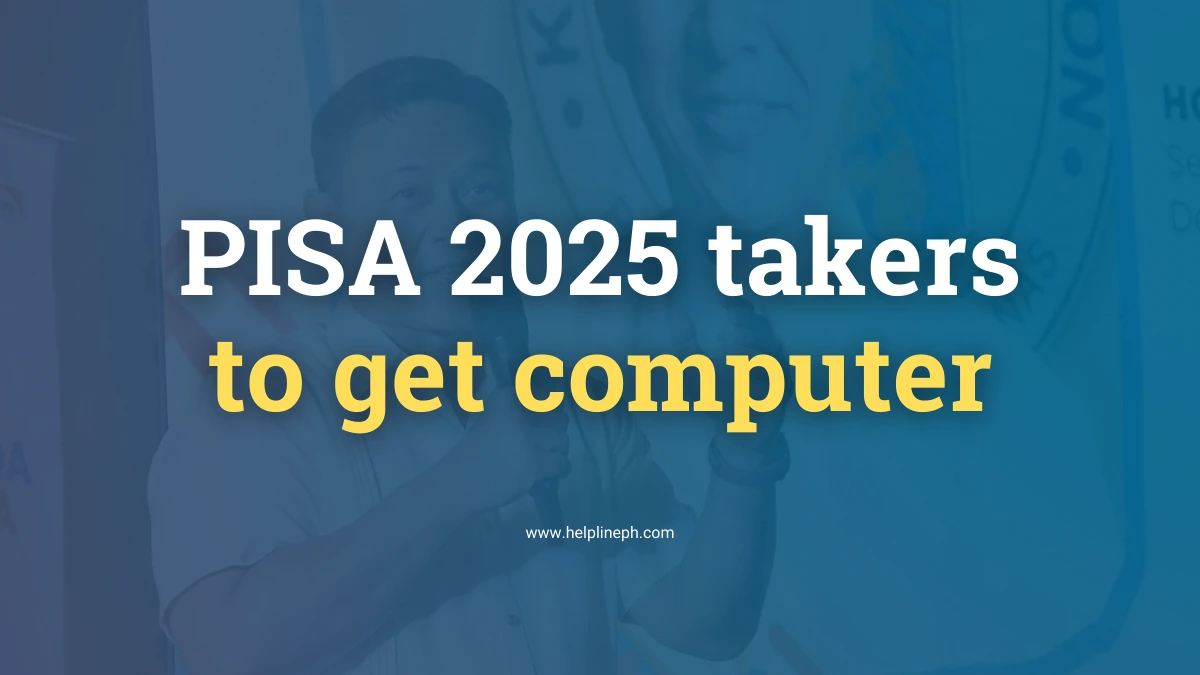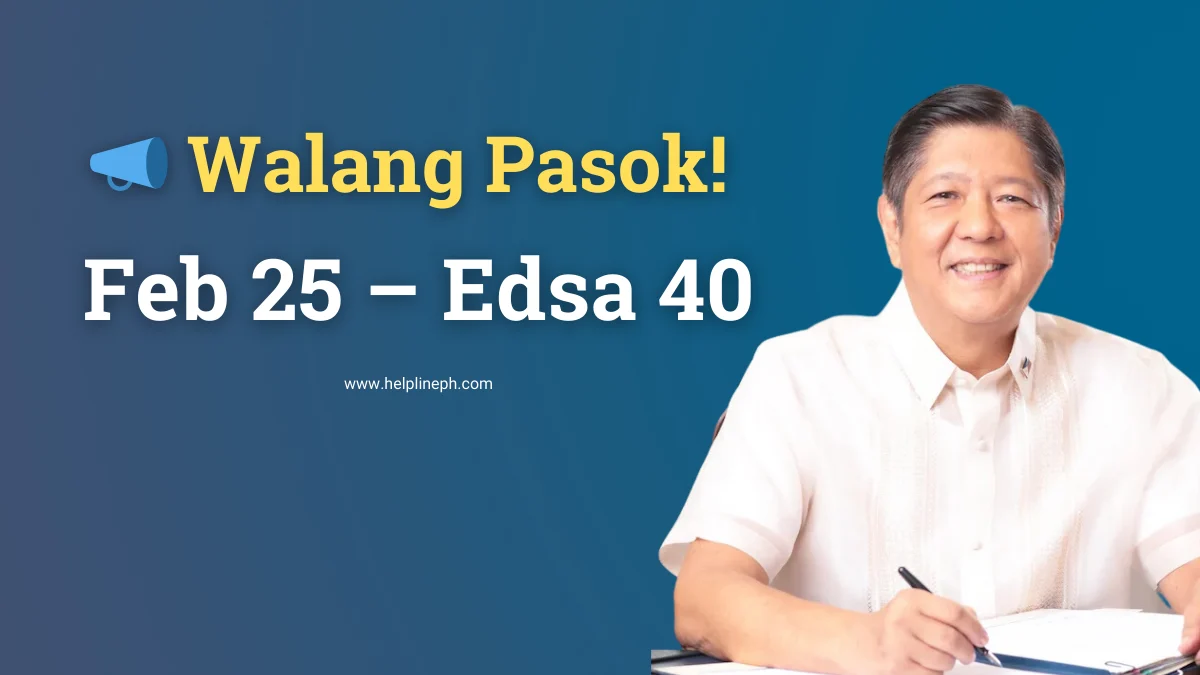The Department of Education (DepEd) has announced plans to provide computers to 200 schools across the country to help students prepare for the upcoming Program for International Student Assessment (PISA). This move comes in response to the disappointing performance of Filipino students in the previous two PISA assessments, and aims to ensure better results in the future.
PISA Overview and Past Performance
PISA is an international exam organized by the Organization for Economic Cooperation and Development (OECD). It evaluates students’ abilities in reading, math, and science. In the past, Filipino students have scored poorly on these tests compared to students from other countries. This has raised concerns about the quality of education in the Philippines and highlighted the need for improvements.
Selection of Schools for the Program
According to Education Secretary Sonny Angara, the OECD will identify 200 schools by January that will participate in the upcoming PISA assessment. These schools will receive new computers as part of a three-step plan to enhance student performance. The goal is to help students get comfortable with using computers and prepare them for the exam.
In previous PISA assessments, many students from rural and remote areas struggled because they were not familiar with computer-based testing. This lack of familiarity made them nervous, affecting their performance. To address this, DepEd’s program includes training on computer use, which will hopefully reduce anxiety and improve test-taking skills.
Three Steps to Boost Student Performance
The DepEd’s plan to improve PISA scores includes three main steps:
- Screening of Students and Creation of Practice Tests: The first step involves the OECD’s screening of 1.9 million students who could potentially take the PISA exam. As part of this, DepEd will create PISA-type reviewers and practice tests to help students get a sense of what to expect. Because the PISA exam questions are kept secret by the OECD, DepEd has sought the help of educational experts to develop similar materials.
- Providing Computers to 200 Schools: The second step is to distribute computers to 200 selected schools. This is crucial because many students in remote areas have limited or no access to computers. Providing computers will give these students a chance to practice taking computer-based exams and develop the necessary skills for PISA.
- Focus on Numeracy, Literacy, and Science: The program will create special sections in schools that focus on enhancing students’ skills in numeracy, literacy, and science. These sections will provide targeted support to address the specific areas evaluated by PISA.
Learning from High-Performing Schools
DepEd also plans to study schools that performed well in the last PISA assessment, specifically those in Metro Manila, Central Luzon, and the Cordillera region. These schools will serve as models for best practices in student preparation. By analyzing their methods, the DepEd hopes to replicate their success across other schools in the country.
Challenges in PISA Preparation
One of the biggest challenges in preparing students for PISA is the lack of familiarity with the exam format. Because the OECD reuses some questions from previous assessments, the exact content of the test remains confidential. This secrecy makes it difficult for students to know what to expect. However, by developing PISA-style reviewers and practice tests, DepEd aims to bridge this gap and build students’ confidence.
Another challenge is the digital divide. Many students in remote areas have little experience using computers. By providing computers to the selected schools, the DepEd hopes to level the playing field and give all students an equal chance to succeed in the exam.
Why PISA Scores Matter
PISA scores are an important indicator of the quality of education in a country. They reflect how well students can apply their knowledge in real-life situations. Poor performance in PISA suggests that students may struggle with essential skills such as reading comprehension, problem-solving, and scientific reasoning.
By improving PISA scores, the DepEd aims to ensure that Filipino students are competitive on the global stage. This can open up more opportunities for higher education and better job prospects in the future. Furthermore, higher scores can showcase the country’s commitment to providing quality education and preparing students for the challenges of the modern world.
Next Steps for DepEd and Schools
The distribution of computers and the implementation of the preparation plan are expected to start once the 200 schools are identified. Teachers in these schools will likely receive training to help them support students in using the new computers and practicing for the PISA exam.
DepEd’s focus on literacy, numeracy, and science aims to develop well-rounded students who can think critically and solve complex problems. By providing resources, support, and modern technology, the DepEd hopes to boost students’ confidence and ability to tackle the PISA assessment with better results this time around.
Frequently Asked Questions (FAQs)
What is PISA?
PISA stands for the Program for International Student Assessment. It is an international test organized by the OECD that evaluates the reading, math, and science skills of 15-year-old students from various countries.
Why is PISA important for the Philippines?
PISA scores provide insights into the quality of education in the Philippines. Improving PISA scores can show that Filipino students are gaining the skills needed to succeed in a global context.
How many schools will receive computers for PISA preparation?
A total of 200 schools nationwide will receive computers to help students practice for the computer-based PISA assessment.
What are the three steps in DepEd’s PISA preparation plan?
The three steps include the OECD’s screening of students and the creation of practice tests, providing computers to 200 schools, and focusing on enhancing numeracy, literacy, and science skills in students.
How will DepEd select the 200 schools?
The OECD will identify the 200 schools by January. These schools will be chosen based on specific criteria to participate in PISA and receive support from the DepEd.
What areas will the special sections in schools focus on?
The special sections will focus on improving students’ skills in numeracy, literacy, and science, which are key components of the PISA assessment.
How will DepEd address the digital divide in remote areas?
By providing computers to schools in remote areas, DepEd aims to help students become familiar with computer-based testing, reducing anxiety and improving their performance on the exam.
Conclusion
The DepEd’s plan to provide computers to 200 schools and prepare students for PISA is a positive step toward improving educational outcomes in the Philippines. By focusing on digital literacy and enhancing skills in key areas, the program aims to boost students’ confidence and performance in future assessments. This effort reflects a commitment to raising the quality of education and ensuring that Filipino students are equipped for global challenges.






